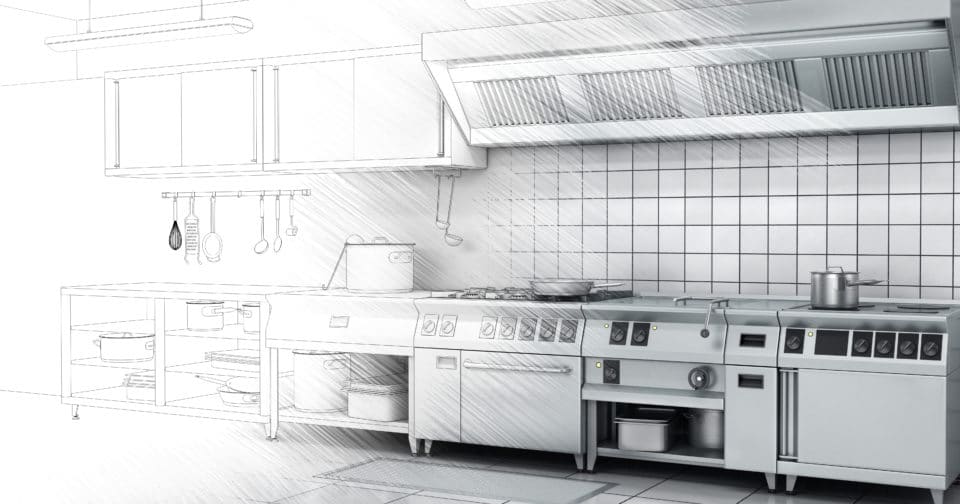
The last weeks of 2024 were as globally chaotic as the first month of 2025 seems to be going. But as foodservice consultants and designers we, and our businesses, will have to keep going as normal as possible through the chaos this year. And, who knows, it might lead to some new possibilities.
There is a saying: “The more things change, the more they stay the same”. What will stay the same this year will be the common themes of environment, waste, energy. regulations, supply chains, food safety and of course AI. In other words, all the things that we’ve been dealing with in 2024; but they look like coming into higher focus this year?
New demands
The environment, and all the other issues related to it, will be driving most of the extra pressure that consultants will face in 2025. Our clients are facing demands from both customers and governments to take steps to overcome issues that have an impact on the planet, such as energy consumption and waste management. It will be new regulations on energy usage and waste recycling that will have a direct impact on the design and operation of the facility – frequently after the design has been documented or management strategy signed off. So, we all have to be ahead of the game and ideally be involved with local organizations in having an input into any proposed changes.
Being conscious of environmental issues needs also to be considered when running the consultancy business. A useful guide to approaching environmental benefit strategies for businesses is to use the ISO14000 series templates for continual improvements and set some goals (it’s not necessary to formalise or sign up): for example, measuring and identifying how much paper was used in the office in 2024 and looking at ways to reduce consumption and measuring the result for 2025: and of course, measuring the savings.
The issue of reducing waste by reducing production has been a developing visibility during 2024 and will come to the forefront this year. A positive is that there are waste source measurement systems to assist in analyzing the source and weight/volume of waste. The (inevitable) remaining waste can now be diverted from landfill by using a number of different processing machines or systems that are available. Again, an environmental strategy for our clients, even those not with ISO14000 accreditation, that also saves them money by buying less, producing less and handling less in the kitchen.
Tighter food safety controls
In the latter part of last year, the headlines once again were on the bacterial contamination of meals and food. Some identified as coming from the ingredients, others from flawed processes. Either way we will see it being used as justification for tighter controls over food safety. Generally, consultants are well aware of food safety in their designs and management strategies. But it is always wise to assume others, either supply chain or equipment suppliers, are not also fully cognisant of food safety to a similar level; even when claiming HACCP accreditation.
Facilities design and operating systems need to check and double check and include facilities and equipment for repeating cleaning or sanitizing processes claimed to have been done by the supplier: assume nothing with food safety; you know where the buck will stop.
Supply chains and energy supplies will continue to be disrupted this year by politics, war, industrial action and plenty of avoidable nonsense. More of our clients will be looking adapt menus so they can buy local rather than have to rely on remote suppliers. This will have an effect on the design of the kitchen stores and food handling as well as food safety procedures. For those without that opportunity, having the option to receive from alternative sources that might require different processing and the capacity to hold backup supplies and provisions, likewise may impact the design of the kitchen and stock control systems.
AI in all its expressions, from stock control systems to robotics, automation and machine learning, will continue to be highlighted this year, but despite how change accelerates, the foodservice and hospitality industry will, because it is a people industry, be slow to pick up direct adoption. In many cases industry suppliers of equipment and systems certainly will be incorporating AI into improving their processes.
This year, consultants and designers will have to start on a fast-learning curve if they are to be able to advise their clients on the benefits (or drawbacks) of increasingly sophisticated systems and technology that they introduce into projects. Because even now by introducing these benefits where relevant for the success of the business, will identify future-thinking consultants; and they are the ones who will succeed best in 2025.
Wishing all a happy and prosperous 2025. I am now corresponding from sunny and friendly Portugal and look forward to meeting up with EAME members in my investigative travels.
Tim Smallwood FFCSI
